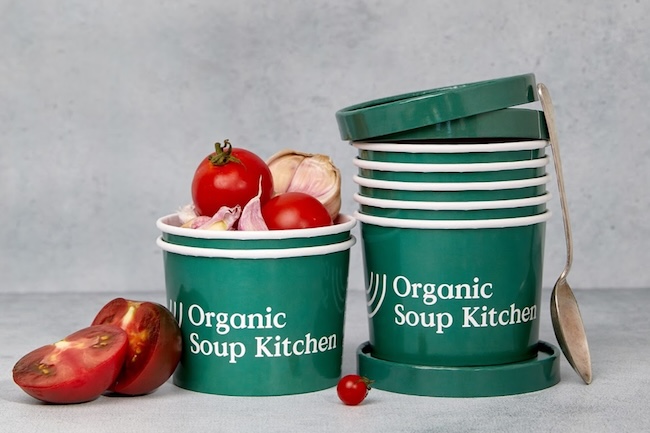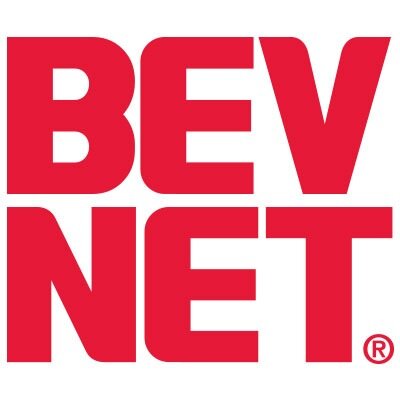
Organic Soup Kitchen needs to be in Every City in America. What is in its Way?
How Organic Insider operates: We accept no advertising, we have no paywalls and we make our newsletters free to everyone because vital information about our industry needs to get out to as many people as possible. Please consider supporting our work, whether you are an individual or a company. Thank you so much.
Is there a more benevolent act that we could do for low-income cancer patients than delivering them free, homemade organic soup?
Equally as important is that the person bringing these cancer patients the soup is often their only interaction with other people during the week, as loneliness is a major issue, exacerbating whatever physical illness is ravaging through their bodies.
This is precisely the work of Organic Soup Kitchen, a Santa Barbara-based non-profit whose mission is to support the health of cancer survivors, low-income seniors and those with chronic illness through its wide selection of metabolic oncology SoupMeals, each carefully crafted with 10-20 organic, medicinal-quality ingredients.
Given its impact and use of pesticide-free products — something essential for individuals afflicted with cancer — one would imagine that foundations that typically fund food banks and similar food-related non-profit organizations would be lined up to help grow Organic Soup Kitchen.
Unfortunately, that has been anything but the case, largely because of the institutional resistance to “organic.”
IT STARTED IN A LOCAL PARK
A successful entrepreneur in the publishing industry, executive director Anthony Carroccio and his chief operating officer, Andrea Slaby, launched this non-profit in 2009, wanting to help those struggling to make ends meet.
What started off as serving organic soup in the local park, the operation soon moved into the Veterans’ Building in Santa Barbara, and it began to roast turkeys for those in need during Thanksgiving and Christmas.
Within a short period of time, word of these fresh cooked organic meals began to spread, and the organization received a call from an oncologist at the nearby hospital. He asked if the organization could blend one of its soups for a patient who suffered from dysphagia, which made it difficult to swallow. Helping this one individual soon led to the creation of its Cancer and Chronic Illness Recovery Program, with the non-profit working closely with physicians to develop recipes.
Now staffed with five employees and 50 volunteers, the Organic Soup Kitchen has served over one million nutrient-dense SoupMeals to residents in Santa Barbara County and beyond. The process of reaching its current scale and capacity required the organization to become extremely proficient at both supply chain and manufacturing, as it must manage an inventory of dozens of highly perishable organic products. This expertise also allowed it to become a social enterprise, where any individual can purchase soup and the net profits are funneled back into the organization.

PUSHBACK ON ORGANIC
Organic Soup Kitchen is using dozens of the highest quality organic ingredients in each SoupMeal, all with the goal of building the immune system, lowering inflammation and promoting healing. Furthermore, they contain no added sugar, preservatives or fillers. This refusal to compromise on quality while maintaining an affordable price point for shoppers (the paying customers) means the margins on these soups are very thin.
So, this 501(c)(3) organization relies on outside funding, from both individuals and foundations.
However, presenting in front of institutions has been met with a good deal of resistance.
“The whole non-profit world is not about organic,” said Anthony Carroccio. “These people at the foundations who are disbursing large amounts of money say, ‘Why are you feeding them organic?’ They do not understand that individuals are going to get healed with food that is organic and contains good fats, and they cannot make the connection between tasting good and feeding the microbiome.”
“For the food banks and similar organizations, it is a numbers game — how many people you feed and what it costs. The person next door who is serving bologna sandwiches would get more money because he is serving more people and has higher numbers.”
Given the incredible work that Organic Soup Kitchen is doing, this model should be replicated in every city in the country.
But the effort to make this a viable entity, even with Anthony Carroccio’s willingness to train any interested party, is enormous.
Furthermore, the pushback that it has received from foundations, an important source of funding for organizations such as these, reinforces an unfortunate mindset that pervades the majority of our schools and hospitals, as well as society at large.
Organic food — and its higher cost — is not broadly viewed as an imperative when it comes to feeding our bodies and allowing it to perform at an optimum level.
We are stuck in the paradigm that food must be cheap and that having it sprayed with poisonous chemicals is perfectly acceptable.
The question we need to be asking the people at the foundations is if they had family members who were sick with cancer, what kind of food would they want them eating: nutritious, made-from-scratch organic soup or something pesticide-laden, factory-farmed and ultra-processed?
Organic Soup Kitchen knows the answer, which is why it is uncompromising in serving only homemade meals that begin and end with organic.
 (On the left, executive director Anthony Carroccio, and on the right, chief operating officer Andrea Slaby)
(On the left, executive director Anthony Carroccio, and on the right, chief operating officer Andrea Slaby)

(A customer being delivered soup at her home)

(A staff member in the Organic Soup Kitchen)

(Tuscan white bean and kale soup)

(Mushroom and kale soup)

(Coconut curry lentil soup)
 |
With gratitude, 
Max Goldberg, Founder |
Quick Hits
* At next week’s Natural Products Expo West, I will be moderating a panel session — Real Organic Project Add-On Label: What Brands Need to Know. It will be on Wednesday, March 13th at 10am PST at Marriott, Elite 1. Please come say hello.
* Suja Organic is now the 2024 official organic beverage sponsor for the PPA Tour (Professional Pickleball Association).
* Tradin Organic’s Floor van de Dalfsen discusses the ongoing “perfect storm” of supply issues impacting multiple commodities across the organic value chain.
* Oscar-winning actress Hilary Swank is joining forces with ECOfashion Corp, the brand started by organic clothing and textile pioneer Marci Zaroff.
* This upcoming weekend, March 9-10, the Wild Orchard Tea Festival will be taking place at the majestic 123 Farm, a regenerative organic farm that is situated between LA and Palm Springs.
* Karen Howard, executive director of the Organic & Natural Health Association, just launched her new book Upset is Optional.
* Daily Harvest continues its retail expansion, now at Costco.
* Kutztown University was awarded a $1.5 million grant to collaborate with Rodale Institute on a regenerative organic agriculture track within its environmental science program.
* Jeff Van Pevenage, Columbia Grain International’s CEO & president, has been appointed to the Global Pulse Confederation’s board of the directors.
* Naturally Boulder awarded Compass Natural’s Steve Hoffman “Industry Leader of the Year” for 2024.
* In Connecticut, beloved grocery store Mike’s Organic closes after 13 years.
New Organic Products
Regenerative Organic Certified® Pasta from Patagonia Provisions
Just this week, Patagonia Provisions introduced a new line of Regenerative Organic Certified® pasta. Available in fusilli, penne and shells, it boasts just two ingredients -- durum wheat flour and kernza, a wheat-like perennial grain. The pasta can now be purchased on the company's website and is slated to hit shelves, nationwide, at Whole Foods Market locations and natural grocery stores this spring.New Cashewmilk Yogurt Formulation from Forager Project
After two years of research and development, Forager Project has made changes to its Cashewmilk Yogurt line, introducing new cultures to deliver an enhanced probiotic product. The revised recipe now offers 2 to 3 grams less sugar than before, and ingredients such as guar gum, pectin and tapioca starch, once used as thickeners and stabilizers, have been removed.Soft Baked Cookies from Skout Organic
New from Skout Organic are Soft Baked Cookies. They are available in four varieties -- Oatmeal Chocolate Chip, Double Chocolate, Peanut Butter and Gingerbread Spice -- and core ingredients include cassava, oats and dates. Vegan, gluten-free and kosher.Grain-Free Granola from Streusli
Streusli is a line of organic, grain-free granola, and its ingredients include hemp, chia and pumpkin seeds, tiger nuts, golden flax meal and pecans. The three varieties -- Original, Savory + Seed, and Cacao + Coffee -- contain no added sweeteners of any kind and are gluten-free.
Weekly News Summaries


New Developments on the Grower Group Lawsuit
Last fall, we provided extensive coverage on the grower group lawsuit against the USDA, and there has been some movement on the case as of late. Representing eight organic stakeholders, Center for Food Safety recently filed a "friend of the court" amicus brief in support of grower group certification. OrganicEye, which sits on the other side of the case, responded to this action and shared a possible compromise.

Food Executives Signal a Strong Appetite for M&A in 2024
By Christopher Doering
As Mondelēz, General Mills and other CPG firms scour the market for deals, high asking prices could remain a sticking point preventing some purchases from taking place.

The USDA's Strengthening Organic Enforcement Rule to be Implemented This Month
By Liz Figueredo
Going into effect on March 19th, the new rule calls for the implementation of more rigorous certification practices for various types of businesses, including key links in the organic supply chain.

MALK Organics raises $7M
The alternative milk brand announced that it has closed an internal investment round, which was led by existing investors Benvolio Group and Rotor Capital.


Whole Foods Market to Expand Small-Format Store Concept for Urban Shoppers
By Jamie Grill-Goodman
Whole Foods Market Daily Shop to debut in NYC this year, with plans for other cities in the works.

Survey: Certifications Matter Less to Shoppers than to the Natural Products Industry
By Rick Polito
Based on recent New Hope Network consumer research, roughly a third of respondents said they actively seek out products labeled USDA certified organic, but 28% said they don’t seek out any third-party certifications.

New Hampshire Discontinues Organic Certification Program, Leaving Farmers Scrambling
By Mara Hoplamazian
A very unfortunate casualty of lawmakers voting down a bill that would have provided about $220,000 to the state’s department of agriculture.


Mexico considers Adding GMO Corn Ban to the Constitution
By Benjamín Ruiz
An absolutely incredible move if the country were to make it.

Will Food Prices Stop Rising Quickly? Many Companies Say Yes.
By Jeanna Smialek and Jason Karaian
Food companies are talking about smaller price increases this year, good news for grocery shoppers and restaurant diners.

Pennsylvania creates Earn-As-You-Learn Apprenticeship Grants for Aspiring Organic Farmers
By Julie Noal
Gov. Josh Shapiro is doing a phenomenal job encouraging organic agriculture in his state.
Want to share this newsletter on social media? You can use this link: Newsletter Link
The material in this newsletter is copyrighted and may be reprinted by permission only. All requests must be in writing. Please use our contact form to request republication rights.
Newsletter Archive
Quick Hits
* At next week’s Natural Products Expo West, I will be moderating a panel session — Real Organic Project Add-On Label: What Brands Need to Know. It will be on Wednesday, March 13th at 10am PST at Marriott, Elite 1. Please come say hello.
* Suja Organic is now the 2024 official organic beverage sponsor for the PPA Tour (Professional Pickleball Association).
* Tradin Organic’s Floor van de Dalfsen discusses the ongoing “perfect storm” of supply issues impacting multiple commodities across the organic value chain.
* Oscar-winning actress Hilary Swank is joining forces with ECOfashion Corp, the brand started by organic clothing and textile pioneer Marci Zaroff.
* This upcoming weekend, March 9-10, the Wild Orchard Tea Festival will be taking place at the majestic 123 Farm, a regenerative organic farm that is situated between LA and Palm Springs.
* Karen Howard, executive director of the Organic & Natural Health Association, just launched her new book Upset is Optional.
* Daily Harvest continues its retail expansion, now at Costco.
* Kutztown University was awarded a $1.5 million grant to collaborate with Rodale Institute on a regenerative organic agriculture track within its environmental science program.
* Jeff Van Pevenage, Columbia Grain International’s CEO & president, has been appointed to the Global Pulse Confederation’s board of the directors.
* Naturally Boulder awarded Compass Natural’s Steve Hoffman “Industry Leader of the Year” for 2024.
* In Connecticut, beloved grocery store Mike’s Organic closes after 13 years.




